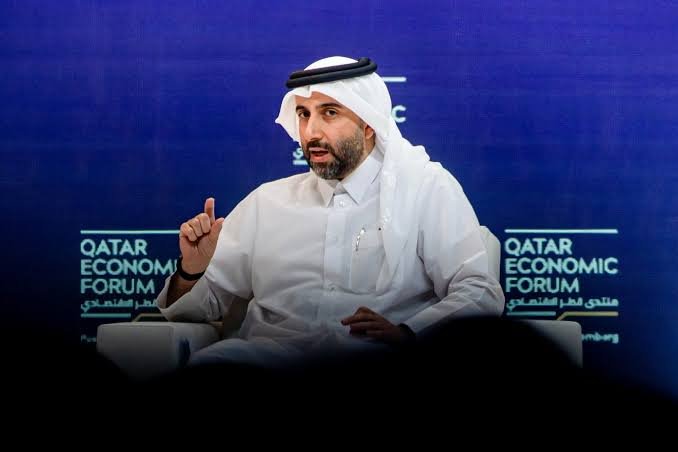Kenya’s President Ruto Seeks Qatari Investment to Boost Economic Recovery Agenda
NAIROBI – Kenyan President William Ruto has intensified his international investment drive with a strategic push to secure Qatari financing for key infrastructure and development projects, signaling East Africa’s largest economy’s continued efforts to diversify its funding sources amid global economic uncertainties. The high-level engagement comes as Kenya navigates complex debt management challenges while pursuing an ambitious economic transformation agenda.
The investment discussions, which took place during recent diplomatic exchanges between Nairobi and Doha, focus on multiple sectors including energy, transportation, housing, and technology infrastructure. The talks represent Kenya’s broader strategy to strengthen economic partnerships with Gulf nations while reducing dependency on traditional Western lenders and multilateral financial institutions.
Strategic Investment Priorities and Bilateral Engagement
President Ruto’s administration has identified several high-priority projects that would benefit from Qatari investment, with a particular emphasis on the government’s flagship affordable housing program, renewable energy initiatives, and transport infrastructure developments. The discussions also explored potential Qatari participation in Kenya’s digital transformation projects, including the ongoing national fiber optic expansion and technology city developments.
The engagement with Qatar forms part of Kenya’s broader Middle East investment strategy, which has seen increased diplomatic and economic outreach to Gulf Cooperation Council (GCC) countries. This approach recognizes the substantial sovereign wealth funds available in the region and the growing interest among Gulf investors in African infrastructure and development projects that offer both financial returns and strategic partnerships.
“Our engagement with Qatar represents a strategic partnership that extends beyond simple financing to encompass technology transfer, knowledge exchange, and long-term economic cooperation,” stated a senior official from Kenya’s National Treasury who participated in the discussions. “Qatari investors bring not only capital but also valuable expertise in large-scale infrastructure development and project management. We’re particularly interested in their experience with major projects delivered for global events and how that expertise could be applied to accelerate our own development timeline.”
The original reporting on these significant investment discussions was covered by Africa Intelligence, which provided detailed insights into the specific projects under discussion and the broader geopolitical context of Kenya’s Middle East engagement strategy. Their reporting highlighted how Kenya is positioning itself as a stable investment destination in East Africa despite global economic headwinds and regional security challenges.
Economic Context and Regional Implications
Kenya’s pursuit of Qatari investment occurs against a backdrop of significant economic challenges, including high public debt levels, currency volatility, and the need to create sufficient employment opportunities for its rapidly growing youth population. The government’s bottom-up economic transformation agenda requires substantial investment in both social and physical infrastructure, necessitating diverse funding sources beyond traditional development assistance and commercial borrowing.
The timing of these investment discussions coincides with Kenya’s ongoing efforts to manage its debt portfolio, which includes recent successful bond issuances but also requires careful balancing of repayment obligations against necessary development spending. Qatari investment, particularly in equity-based projects rather than pure debt financing, could provide more fiscal space while transferring some project risks to experienced international partners.
“President Ruto’s investment outreach to Qatar reflects a pragmatic understanding of Kenya’s current economic realities and future opportunities,” explained Dr. Mumbi Njuguna, an economist with the Kenya Institute of Public Policy Research and Analysis. “With traditional funding sources becoming more expensive and conditional, diversification toward strategic partners in the Middle East makes both economic and geopolitical sense. However, the success of these initiatives will depend on structuring deals that provide mutual benefits while ensuring Kenya maintains strategic control over critical infrastructure and avoids unsustainable debt accumulation.”
The potential Qatari investment could accelerate several key projects in Kenya’s Vision 2030 development blueprint, including the Nairobi-Mombasa expressway, geothermal energy expansion in the Rift Valley, and the development of special economic zones designed to boost manufacturing exports. These projects align with Qatar’s own investment priorities in African infrastructure and energy sectors, creating natural synergy between Kenyan development needs and Qatari investment strategy.
For comprehensive coverage of how these investment discussions progress and their impact on Kenya’s economic landscape, readers can follow detailed reporting through Kenya news platforms that monitor the country’s economic development and international relations. The outcome of these talks could significantly influence Kenya’s economic trajectory in the coming years.
Regional implications are also significant, with Kenya’s success in attracting Qatari investment potentially influencing how other East African nations approach Middle East partnerships. As the region’s largest economy and transportation hub, Kenya’s economic stability and growth have spillover effects across East Africa, making international investment in Kenyan infrastructure indirectly beneficial to neighboring countries through improved trade connectivity and economic integration.
The discussions also reflect broader trends in Africa-Middle East economic relations, which have deepened significantly in recent years. Gulf nations increasingly view African infrastructure, technology, and renewable energy projects as attractive investment opportunities that offer diversification beyond their traditional hydrocarbon sectors. This alignment of interests creates opportunities for partnerships that can accelerate African development while providing Gulf investors with stable long-term returns.
As the investment talks progress, attention will focus on the specific terms and conditions of any agreements reached, with transparency and alignment with Kenya’s long-term development objectives being critical considerations. The government’s ability to negotiate favorable terms while maintaining its strategic priorities will be closely watched by both domestic stakeholders and international observers assessing Kenya’s economic management capabilities.
The success of President Ruto’s Qatari investment initiative could potentially mark a significant milestone in Kenya’s economic development journey, providing not only necessary funding for critical projects but also establishing a template for future partnerships with other non-traditional investors. As global economic dynamics continue to evolve, such strategic diversification of investment sources may prove increasingly important for African nations seeking to accelerate their development while maintaining fiscal sustainability and economic sovereignty.


